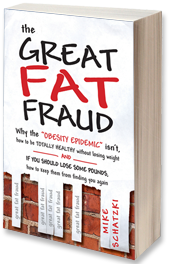You didn’t think that Weight Watchers, which is the 800 pound gorilla in the commercial weight loss industry, was going take all this researchaganda hoopla from Jenny Craig lying down did you? Not a chance.
So in September of this year, they got their own researchaganda piece published in Lancet, which is the British equivalent of the Journal of the American Medical Association. This study (you have to create an account to see it but, the account is free) was, of course, paid for by Weight Watchers and, if you look at the conflicts of interest on last page of the study, every one of the authors “declare financial support to their institutions for the submitted work from Weight Watchers.” And of course, the program charged no fees to the participants but, unlike the Jenny Craig study, did not provide them with free food.
What the study found was that people who stuck with Weight Watchers for a year lost just under two pounds a month in the first six months and then plateaued, compared to the control group in a “standard care” program who lost a little under a pound a month in the first six months and then plateaued (see Figure 2 in the study).
The average dropout rate for the program was 42% after a year. However there were big differences in the dropout rates in the three countries where the study was conducted. In the UK the dropout rate was 64%, in Australia 41% and in Germany the dutiful Germans only dropped out at a rate of 25%.
Again, it is likely that these dropout rates are artificially low due to the fact that this was a study, which creates the so-called Hawthorne effect, Weight Watchers knew who the participants were and therefore could focus on keeping them in the program and the program was free to participants. There is no way to know the true dropout rate for the average person in a Weight Watchers program unless and until Weight Watchers decides to release that data for all the participants in its programs. Don’t hold your breath.
Nonetheless, Weight Watchers can now fire back that they too have been certified as being the greatest in a researchaganda study published in a prestigious, peer-reviewed journal.






